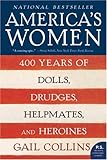
In Supreme Power: Franklin Roosevelt vs. the Supreme Court, Jeff Shesol manages to do something rare: combine excellent research and a gripping narrative. (For those familiar with Rick Perlstein's Before the Storm: Barry Goldwater and the Unmaking of the American Consensus, I think the writing style and amount of detail are similar). The book deals with Franklin D. Roosevelt's attempt to pack the Supreme Court with extra justices in 1937 - an attempt that ultimately failed and, unfortunately, few people remember today. Shesol brings this important episode in our history to life.
First of all, Shesol resists the temptation of many historians to make the past prologue. He doesn't recite the whole history of the U.S. Supreme Court, nor does he stretch historical analogies to draw "lessons" or "comparisons" for today. Rather, Supreme Power stays focused like a laser on the subject of the book, beginning in 1932 with FDR's election. This allows Shesol to really delve into detail, spending almost all of the book's 530 pages on FDR and the court. (Incidentally, if you know absolutely nothing about the Supreme Court or its history, you might want to scan wikipedia quickly before reading this book).
And the detail in the book is extraordinary. I studied FDR's court-packing scheme in law school and read the major cases discussed in the book, but I felt I learned much more reading Supreme Power than I did in 3 years of law school. For example, I had read the Schecter case, which invalidated important New Deal legislation, but I did not even know about the businessmen and activists who formed associations, such as the American Liberty League, to launch test cases like Schecter. It turns out the Schecter brothers even voted for FDR in the 1936 elections! Another fascinating trivia bit revealed early in the book is that the whole issue almost became moot because Justices Sutherland and Van Devanter almost retired in 1932 - but refused to do so when Congress lowered their pensions.
Shesol also strives - and for the most part achieves - the ideal of historical objectivity (pay the reviewer who claims Shesol is sympathetic to FDR no heed). He is quite willing to point out the flaws of the New Deal and the fact that it wasn't universally popular (raising concerns similar to Amity Shales' The Forgotten Man). He also seeks to uncover the ulterior motivations of men like Senator Burton K. Wheeler (against court-packing) and Joe Robinson (for).
However - and this I found remarkable - Shesol also tries to understand the logic and motivations behind the court-packing plan itself. All too often, historians deride the plan as a mistake or doomed to fail. Yet, Shesol shows that the plan did in fact have an organic history and genesis of its own. He discusses the longstanding concern that many observers, including former president and chief justice Taft, had regarding judges over the age of 70. In fact, FDR's chief foe on the Supreme Court, arch-conservative Justice McReynolds, proposed a similar plan during the Wilson administration. In short, Shesol shows readers the type of information bombarding the White House about elder judges, as well as how FDR and his advisors could convince themselves that adding additional judges for each over the age of 70 was a brilliant solution.
My one complaint - and it is a small one - is that Shesol does not seem to make much use of the political science literature about courts and judicial review. This is a shame. I think political science offers many compelling explanations about why elites would oppose limits on judicial review. For example, Tom Ginsburg's Judicial Review in New Democracies: Constitutional Courts in Asian Cases advances the theory that elites view judicial review as important to protect themselves if they ever become relegated to minority status (for example, Republicans becoming the minority party in Congress). Some of these theories can be found in some form in Supreme Power, but Shesol, who is primarily a historian, primarily credits the political dynamics of the 1930s for defeating FDR's plan rather than larger political and institutional forces.
Supreme Power will probably become the primary account of FDR's court-packing scheme for some time. Highly recommended for anybody interested in American history or the politics of courts.
(11 customers reviews )Customers Rating=4.5 / 5.0
More Detail For
Supreme Power Franklin Roosevelt vs. the Supreme Court Interesting Products
Capital GamesThe American Patriot s Almanac Daily Readings on AmericaTelling Memories Among Southern Women Domestic Workers and Their Employers in the Segregated SouthThe Vast Fields of OrdinaryTear Down This Myth How the Reagan Legacy Has Distorted Our Politics and Haunts Our FutureChamplain s Dream

































